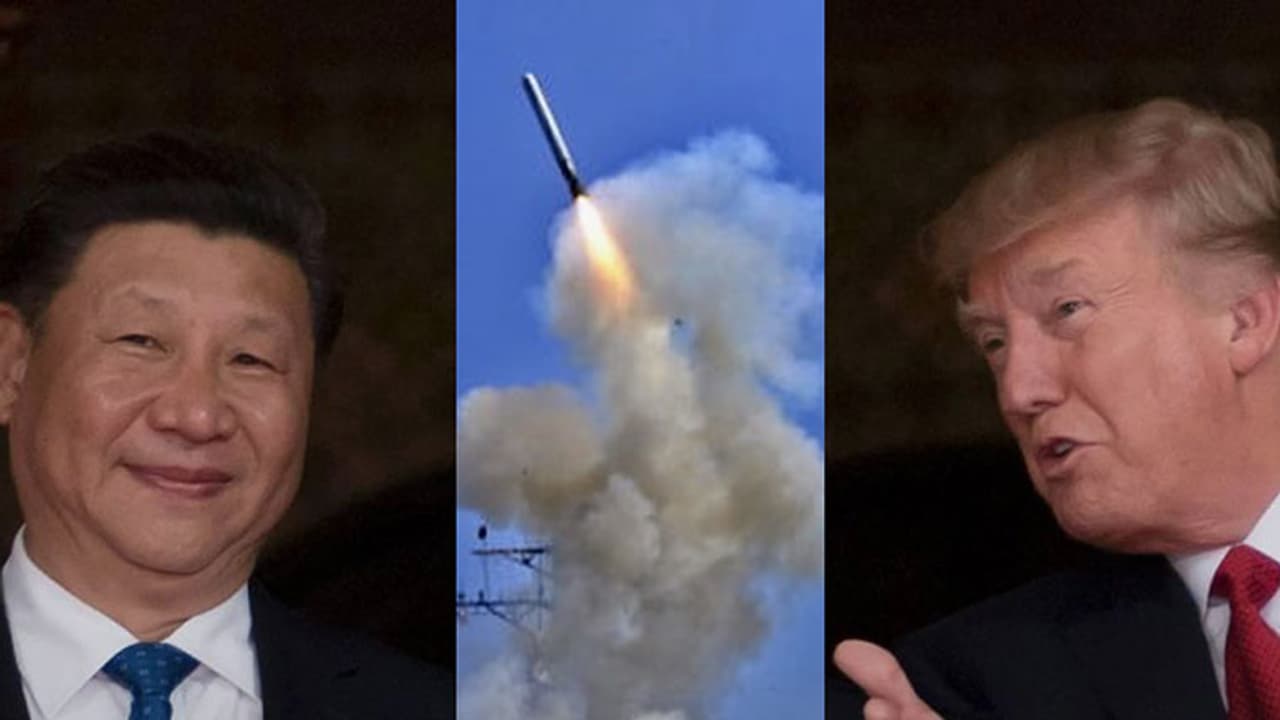The US Secretary of state Rex Tillerson described the discussions as "very frank and candid." Shorn of diplomatic niceties, that would mean a straightforward and less than polite conversation occurred between the leaders of the world’s two largest economies.

Just before the grand dinner for the visiting Chinese premier, the US president ordered a barrage of Tomahawk missiles into a Syrian airbase. By so doing he once again underlined something the Chinese abhor in foreign affairs – unpredictability.
The decision to strike Syria also underlines a decisiveness which was earlier missing from the Trump foreign policy. This President will act suddenly and decisively on US core interests globally this was the message that must have reached the Xi entourage. The target of the tomahawk missile may be in Syria, its timing was aimed at Beijing.
A tone of positivity underlined the summit meeting however it was also clear that Washington’s impatience with Beijing was on display. Much like a headmaster would to a student - the US set a 100-day goal for China to reduce its massive trade deficit which was $347 billion in 2016.
Taken together, an international missile strike and a straightforward demarche to reduce the trade deficit will not go down to well with Xi Jinping who had hoped to appear as an equal to Donald Trump at Mar-e- Lago, Florida.
Beijing must act on North Korea
The North Korean nuclear threat that manifested in the US seventh fleet sending a flotilla to Korean waters headed by the Nimitz-class potentially nuclear-armed aircraft carrier and nuclear weapon armed submarines - underlines how serious the US is about the growing threat.
The US president spoke in direct terms for China to constrain North Korea. Going as far as to say that if China does not help the US will do so on its own.
China has a lot of leverage over North Korea. It accounts for 80 percent of the isolated nation’s trade, has actively helped its weapons program and controls 40% of its oil flow. Yet, it has done little to moderate North Korean behaviour. With the US battlegroup in Korean waters, the option of attacking the North remains very much live for the USA.
America is unlikely to wait till North Korea gets the intercontinental ballistic missiles and more stable solid fuel capability to launch attacks on the US mainland.
For China the time of fobbing off the US requests on acting on North Korea may be running out.
Buying time
In sum, the XI-Trump meeting had three outcomes. The first was that the US President had to tone down the anti-China rhetoric. He has come to terms with the sheer size and power of the People’s Republic. The language that marked his presidency with comments like China “raping” the American economy has changed. It has instead given way to looking for ways to work with the Asian giant.
The second lesson is for China – a trade war looms. If China is unable to offset its currency manipulation and labour arbitrage, Trump could invoke tariffs, and that would lead to a manufacturing shift away from Asia.
That would make products very expensive for the US consumer and bump up inflation in that country, but for China it could be majorly destabilising.
It is one thing to pay 50 dollars extra for an iPhone it’s quite another to have 200,000 Chinese suddenly looking for work.
Finally, China’s habit of running with the hounds and hunting with the hares could cost it dearly. How it responds to Washington’s call on Pyongyang could well determine the next summit meeting between the two countries.
(The author is a Delhi-based security analyst for defence, foreign policy stories.He was also a visiting fellow at the Institute of Chinese studies, Delhi)
